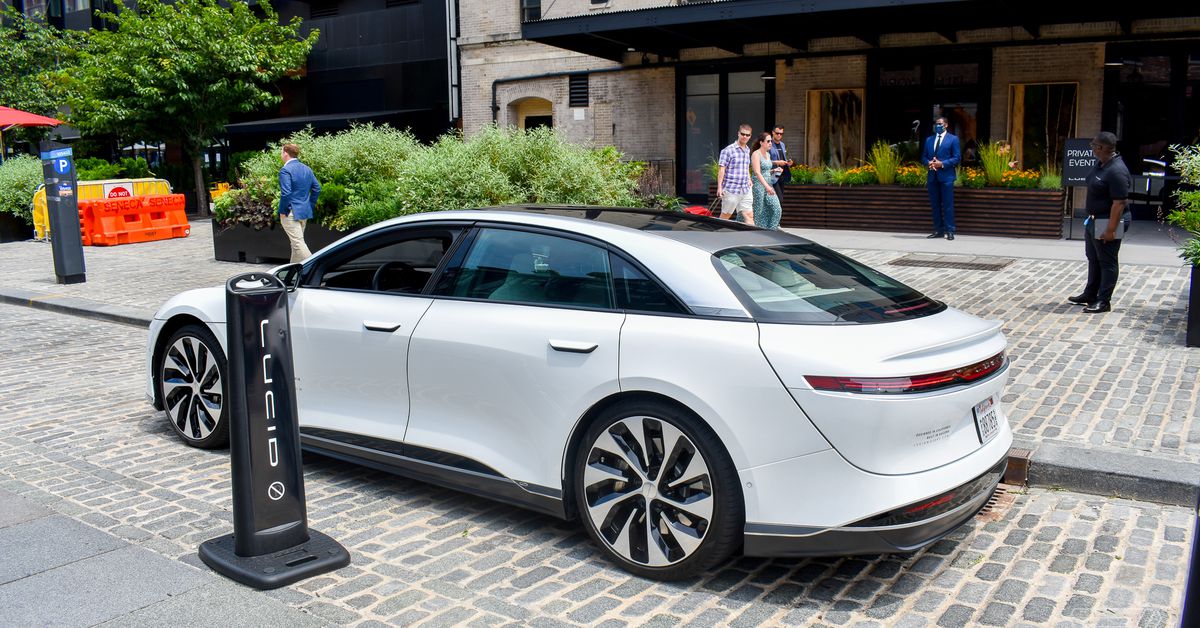Four years after Ford was reportedly considering buying Lucid Motors, the EV startup is now worth more than the Detroit automaker. Lucid Motors’ market capitalization passed Ford’s on Tuesday, one day after the startup reported its first quarterly financial results as a publicly traded company and just a few weeks after it started shipping its luxury electric sedan, the Air.
Lucid Motors has a comparatively long history for an EV startup as it was founded in 2007 as a battery company called Atieva. But after a 2016 pivot to making an electric sedan, Lucid Motors found itself running out of money at a time when others were starting to take off. One of the options it turned to was a potential Ford acquisition. From a July 2017 report in Recode:
Lucid began its fourth round of institutional fundraising earlier this year, with the help of investment bank Morgan Stanley. Ford’s acquisition offer came as a surprise, said a source close to Lucid: “The bank approached Ford to see if they wanted to participate in the Series D. They came back and said they wanted to acquire.”
That never happened, though, and Lucid Motors ultimately treaded water until striking a massive deal with Saudi Arabia, which now owns a majority of the startup. Ford, for its part, was able to work out a pretty sizable investment of its own into Rivian — a deal it swiped out from under rival General Motors.
In the years since, Lucid Motors spent billions of dollars of Saudi Arabia’s money getting the Air EV ready for production. The startup revealed Monday that it has lost more than $1.5 billion this year alone in the mad dash to start shipping the Air to customers and has spent some $5 billion across its lifetime.
The stock market — which has been extremely hot on electric vehicle startups lately — rewarded that effort Tuesday, pushing Lucid Motors’ valuation to nearly $90 billion. Ford finished the day at about $79 billion.
Lucid Motors still has a lot of work ahead. The startup is still building out its new factory in Casa Grande, Arizona, and says it plans to build 20,000 Air sedans in 2022 before adding an electric SUV to its lineup at the end of the following year. It will be challenging work, to be sure. Today, at least, the market treated that to-do list as pretty much pure upside.
